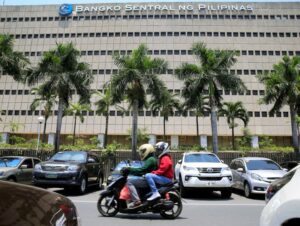The Launch of an Interest Rate Swaps Market in the Philippines: A Move Toward Enhanced Liquidity and Trading
On Monday, the Philippine central bank unveiled a significant enhancement to its financial landscape with the launch of an interest rate swaps (IRS) market. This initiative is anchored to a newly established benchmark rate, set to invigorate bond market trading and enhance liquidity—a move that financial insiders and investors should pay close attention to.
What Are Interest Rate Swaps?
Interest rate swaps are an essential tool for managing interest rate risk in developed fixed-income markets. They allow parties to exchange cash flows based on fixed and floating interest rates, providing flexibility for entities looking to either hedge their exposure to interest rate fluctuations or speculate on future changes in borrowing costs. With the new IRS market, businesses and investors in the Philippines can better navigate the complexities of interest rate movements, making it an exciting development for the country’s financial ecosystem.
The Overnight Reference Rate (ORR): A New Benchmark
Central to this development is the Overnight Reference Rate (ORR), which has recently been recognized by the International Swaps and Derivatives Association. The ORR will be derived from the Bangko Sentral ng Pilipinas’ daily reverse repurchase auctions, making it a more robust and reliable benchmark for pricing loans. Previously, loan pricing relied on yields from poorly traded government securities, which lacked transparency and consistency.
Governor Eli Remolona expressed optimism about the impact of the PESO IRS market, stating, “We are excited for PESO IRS to go live to help boost transactions, create a benchmark yield curve, and deepen our capital markets.” The establishment of a benchmark curve is a game-changer, as it will inform banks and lenders on how to price loans across various maturities, thus improving lending precision.
Strengthening Market Liquidity and Transparency
A key aspect of this initiative is the commitment from sixteen banks to serve as market makers for the ORR-based IRS. These institutions will ensure consistent pricing across various maturities ranging from one month to ten years, thereby enhancing interest rate transparency and providing a more liquid environment for financial transactions.
This move is particularly important for investors and businesses looking for clarity and predictability in their financing activities. By fostering better pricing mechanisms, the central bank aims to strengthen the overall capital market, benefiting a wide range of stakeholders from individual investors to large corporations.
Future Developments: The Repo Market
In addition to the IRS, the Bangko Sentral ng Pilipinas is also making strides toward adopting global master repurchase agreement contracts. Such agreements will enable banks to access treasury bonds for repo transactions, further bolstering the government securities repo market. This step is crucial for increasing liquidity and enhancing the overall efficiency of capital markets—another key area of interest for investors and financial professionals.
Conclusion
The launch of the interest rate swaps market and the establishment of the Overnight Reference Rate signifies a pivotal moment for the Philippines’ financial infrastructure. For investors seeking opportunities and insights into navigating this evolving landscape, our expert analysis at Extreme Investor Network will provide the edge you need to make informed decisions. Stay tuned as we continue to monitor these developments and offer insights into how they may affect your investment strategy.

